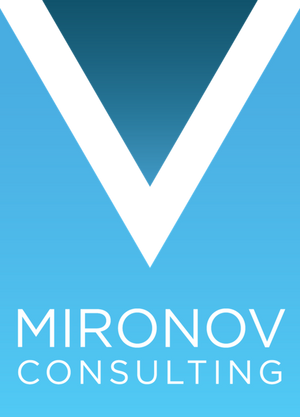There’s been a lot of good chatter in the PM-osphere about the need for mentoring. Getting your first product management gig is tough, and figuring out how to succeed is tougher. It seemed worth sorting my own thinking on this, and inviting other gray beards to join in.
If you’re a first-time product manager (or product marketer or product owner), do you need a mentor? Maybe. But before we propose a solution, let’s sort this by needs and goals.
[1] Newbie Training
If you’re a brand new product manager and have never done the job before, your company should pay for you to get (at least) a few days of training. There are lots of good folks providing this. Even better if your whole team uses group training as an occasion to address bigger organizational issues, role definitions and common terminology.
Remember that three days of training does not make you a product manager. Even if you get a certificate saying so. It introduces general concepts / frameworks / templates that you have to apply to your own situation. Product management is not a rote science: there are no magic beans, no perfect checklists, no generic strategies, no cut-and-paste answers. We learn by doing and humbly examining the results.
Who pays?Your company should pay for this. I’m very reluctant to recommend that any newbie or wannabe pay for this out of her own pocket.
[2] Methodology Coaching
Your organization may want to move toward Lean or Agile/Scrum or Discover to Deliver or User-Centered Design. IMO, improved group processes are best driven by a methodology-specific coach who babysits the entire team through a few cycles/sprints/designs/implementations. Pick a LeanUX coach the same way you’d choose a heart surgeon: personal references from people you trust who’ve had good outcomes.

Product managers very rarely drive methodology choices, and can never implement process change unilaterally. This is a team sport, with most of the players wearing Engineering jerseys. So I don’t think it makes much sense for you engage a methodology coach/mentor exclusively for yourself.
Who pays?Your company does. I’m suspicious of anyone selling personal training that will “make” you lean or agile or user-centric on your own.
[3] Improving Your Work and Getting Ahead Internally
If you’ve been at this for a while, you may want someone who you can talk through issues with, bounce ideas off, ask for tools and insights.
Inevitably, this also includes people issues and office politics: why are those salespeople such a**holes; how do I pitch my ideas to my ADHD director; how good a business case do I need for this kind of project; what promotional opportunities make sense within my company? Soft skills, non-technical issues. In my hundreds of mentoring discussions, these always come up. Product management is as much about people as about methodology, and is inherently political.
Look first for a mentor within your company. Your immediate manager, or someone in a senior role that you can trust. Much of this advice will be organization-specific: the kinds of arguments your CEO appreciates, which organizations are about to be restructured, the best way to share roadmaps internally, how many customer interviews you need to gain credibility with your Engineering VP.
If you can’t find such a person internally, then an outside mentor makes sense. Pick someone with at least as much gray hair as your boss’s boss – ideally who’s done that very VP-level job – since you’ll want advice that rings true a couple of rungs up. And remember that you’ll always have more context/market data/organizational detail than your mentor. Plan on 2-3 hours/month, and bring instances of real issues to each meeting.
Who pays?Your company should pay for this. If you’re a valuable senior contributor and she really wants you to succeed, your Director/VP should try to fund a little mentoring. This isn’t for everyone, and you should consider it a non-cash bonus. Her goal would be to make you a better manager, and push you up the ladder. Here again, I’m hesitant to take money out of the pockets of individual contributors.
[4] Broader Career Guidance
Upfront in any mentoring conversation, I want to know if you’re considering leaving your current company. That’s critical, because I’m uncomfortable taking money from your employer to help you decide if you want to quit. So be clear with yourself if you want help finding the next exciting thing. If you’re trying to sort out whether you only hate your manager, or your entire company. If you think you’d like to become a consultant or join a startup or change industries.
IMO, you’ll want multiple points of view. Pick a few discreet outsiders with diverse opinions. Find an industry veteran with broad cross-company perspective, and buy him lunch. Often these are one-and-done conversations, as much to sort out your own thoughts as to elicit specific feedback.
A subset of these discussions turn into longer-running mentoring relationships: sporadic but stretching out over many months. I consider this pay-it-forward
time, so am hesitant to charge for it. Instead, it’s based on availability. (“You need to talk? I’ll be back next weekend, or pick some white space for a phone call”.)
Recruiters are a good source of job leads, but you should remember that they get paid to fill specific openings. So don’t assume their advice is objective/unbiased. I also know a couple of brilliant (paid) career coaches, but don’t know any focused specifically in the product management space.
And on the Supply Side…
Why be a mentor? It’s a chance to get out of your own head for a little while, earn some psychic rewards for the hard lessons you’ve learned. It might:
- Exercise some parts of your kit that aren’t currently being used in your day gig
- Clarify your own thinking by teaching someone else a specific skill or tool
- Improve your talent-spotting and managerial skills
- Provide fresh insights into what the rank-and-file are thinking (see my job advice posts)
More importantly, this is IMHO how we grow the next generation of great product folks. Product management is still a cottage industry, short on reference materials and long on folk wisdom. I’d challenge every VP-level product person to find a few pay-it-forward hours per month for one mentee. Off the books. Uncompensated. Pitching in, turning the karmic wheel. If you’re already mentoring product folks, don’t keep it a secret.
Full disclosure: I do little bits of [1] and [2] and [3] for money, including a couple of company-paid mentoring assignments at a time. And 6 or 8 concurrent unpaid arrangements like [4]. (You know who you are.)
Sound Byte
If you’re looking for a mentor, be clear about your needs and goals… then find someone who can really help you. If you can be a mentor, take the call.
End notes: Gray beards
I use this phrase lovingly and without the male bias. My better half instead says “old enough to have gray hair and wise enough to dye it.” If you have 10+ years in product management/product marketing/product ownership and still retain some love for the work, then consider yourself included. I’ll ship a stick-on beard to any veteran who wants one – along with my appreciation and a free hour for whatever you need.
Out-of-pocket spending?
I’m a strong advocate for product training, workshops, product camps, etc. However, I’ve seen no market evidence that any product certification actually helps someone land a product job. So I can’t recommend that individuals pay for it out-of-pocket.

